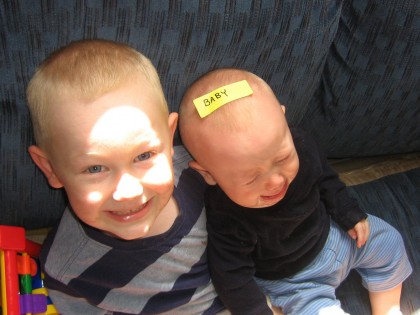No Such Thing as Normal
Kate Whittaker Cousino | May 31, 2018
“I would argue that there is no fixed normal,” says clinical psychologist and senior author Avram Holmes of Yale University. “There’s a level of variability in every one of our behaviors.”
- When it Comes to Our Brains, There's No Such Thing As Normal, Neuroscience News, Feb. 2018
I think part of my inherent attraction to personalism is that it leads to an incredibly contextualized set of ethical guidelines. What matters most is the person in front of you, in their subjectivity. As a fairly awkward person, I appreciate that even if I get all the social "rules" wrong, I can still respond to the person actually in front of me with openness and charity, and might still be able to meet that person in a real way despite my ignorance or ineptitude with societal formulae. Where so many ideologies reduce people to roles or identity groups, Christian Personalism resists this flattening of human experience and interaction to insist on the importance of humility in the face of the incommunicable: there is in each person a depth of subjectivity that resists simple definitions and a freedom of will and mind that cannot be compelled. If you know one person intimately well---you know one person.
As the Neuroscience News headline says, there's no such thing as "normal."
This doesn't mean that we can't talk in broad categories about external or observable traits and behaviours. What it means is that we can't say everything there is to be said by assigning these categories to a man, woman, or child. We have to look more closely at the individual.
There's an increasing interest in neurology circles in researching clusters of symptoms rather than diagnoses. There's so much overlap between diagnoses like ADHD, ASD, ODD, SPD, OCD, tic disorders, Tourette's and the like, and so much variability within each of these diagnoses, that a multi-variant approach is just more useful. No collection of labels and diagnoses can tell us who someone is.
As this Quartz article sums the matter up,
In other words, trying to define people one way from a psychiatric perspective is a failure of imagination and opportunity, which hobbles people rather than empowering them to inhabit their full selves.
Sometimes we feel the inadequacy of labels very keenly--we want more.
[Image: my son, many years ago, labelling his little brother as part of a reading lesson. His brother did not seem to appreciate it.]
I have a few labels myself, and they can be useful, in the way language itself is useful--and limited, in the way language itself is limited. My younger son has seen a number of specialists to try to sift through some difficulties he's had, and wound up with a few labels of his own.
The labels are a kind of pass-code to getting help with the challenges he already has, but can't actually tell us anything about who he is. I still need to let him tell me who he is and what he struggles with. Then it is my job, as his parent, to figure out how to make the various labels, services, and structures meet his individual needs.
I don't want to rid the world of labels. Categories can help us find people who share our experiences and find validation and connection through those commonalities. But just as I don't want my son to feel restricted to one specific way of understanding himself or limited to empathizing with only a small subset of human experiences in common with his, I think there are dangers in defining ourselves or others too narrowly by our group identifications. I think people can lose touch with their own experiences when a label becomes really central to their sense of their own identity.
We simply are what we are, and the labels and generalizations, categories and coping mechanisms, social codes and strategies are all merely aids in figuring out how to make "what we are" interact with "the world we have to live in" in functional ways.
Your labels can't tell me who you are.
I have to let you show me.

